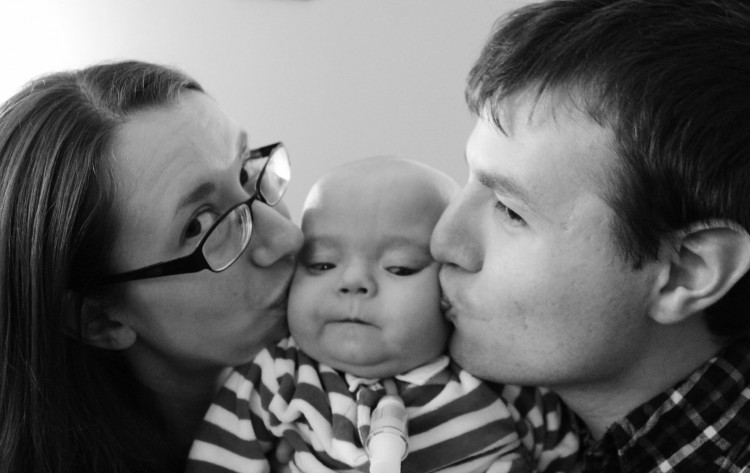No one likes to admit their weaknesses. But having a child with special needs will eventually and inevitably make your shortcomings known to you at some point in time or another. And while I have many, one of the things that has become clear to me, is that at times, I still struggle with anxiety.
But what does that look like in my life?

It’s being in (thankfully now very rare) situations where my son’s body can’t keep his blood-oxygen saturations above 90 percent (due to chronic lung disease), and watching his O2 saturation/heart rate monitor constantly alarm. I then remember the awful sinking feeling of watching his numbers dramatically drop on the monitor when his condition was still critical in the NICU.
It’s noticing minute changes in his baseline vital signs, such as a slightly increased heart rate, and worrying the cause of this could be due to his previous issues with pulmonary hypertension.
It’s realizing he is getting sick with a cold and being unable to stop your mind from picturing and remembering worse times. My mind travels back to what it was like when he was still in the PICU and contracted pneumonia. He was so ill he needed to be paralyzed in order to safely bring his carbon dioxide levels back down to a healthy range.
It’s avoiding taking him out anywhere in the car while a tube feed is running, because sometimes I don’t have the energy to clean the vomit everywhere in the car and all over his trach, outfit, and car seat.
It’s the reluctance to take him out to new places because I don’t like dealing with all of the stares and looks we get from strangers when they notice his trach, emergency oxygen tank, pulse oximeter machine, or other various pieces of medical equipment we will carry with us just in case.
It’s feeling like you’re unable to differentiate between “regular” kid stuff, such as ear infections and colds, and wondering if every small illness is going to lead to full-out respiratory distress and yet another impromptu ER visit.
It’s going to bed every night and worrying about being awakened by a pounding on our bedroom door by our son’s night nurse because his trach has either become plugged or fallen out, and he is now unconscious.
It’s the weight of the realization of knowing our child could die if we accidentally fell asleep and didn’t wake up in time to his alarms on the nights my husband and I stay up to watch him when there is no available nurse.
It’s the constant nagging, wondering, questions.
What if he isn’t only delayed?
What if he will never learn to walk, talk, or eat on his own?
What if he will never be healthy?
It’s lying awake in bed wondering what his life will look like when he is older. Will he still have similar struggles? Is his life going to be easier for him as an older child and young adult?
It’s the haunting questions forever in the forefront of my mind.
Have I done everything I should have done for him today?
What if I missed something vitally important that I should have picked up on with him?
What if the decisions I made today in what I believed to be in my son’s best interests at the time, turn out to not be what is best for him?
It’s the fear of wondering if we ever have more children, will they also be born early and have as many health struggles that Benjamin has had to face? Will they even be healthy enough to live, or will they die?
It’s speaking with other special needs moms and hearing them say their child with similar health issues to yours recently and unexpectedly passed away, and being so crushed for them yet also distraught with your own grief for picturing the same thing happening to your own child and realizing how easily you could lose him.
It’s realizing how unlikely some of these fears of mine often are, yet being unable to stop myself from worrying anyway.
It’s understanding that although many of the fears I worry about are very real, it is this very anxiety that can either have the potential to let fear take over my mind, or be the driving force that gives me another reason for me to remain 100 percent attentive to protecting the well-being of my son.
It’s how I choose to respond to the anxiety.
It’s learning to let go of the irrational thoughts, and yet knowing to listen to the anxiety when there is valid reasoning behind those feelings.
It’s about balance, and it’s still a work in progress as I learn how to balance those thoughts and feelings.
Follow this journey here on The Book of Benjamin
We want to hear your story. Become a Mighty contributor here.

